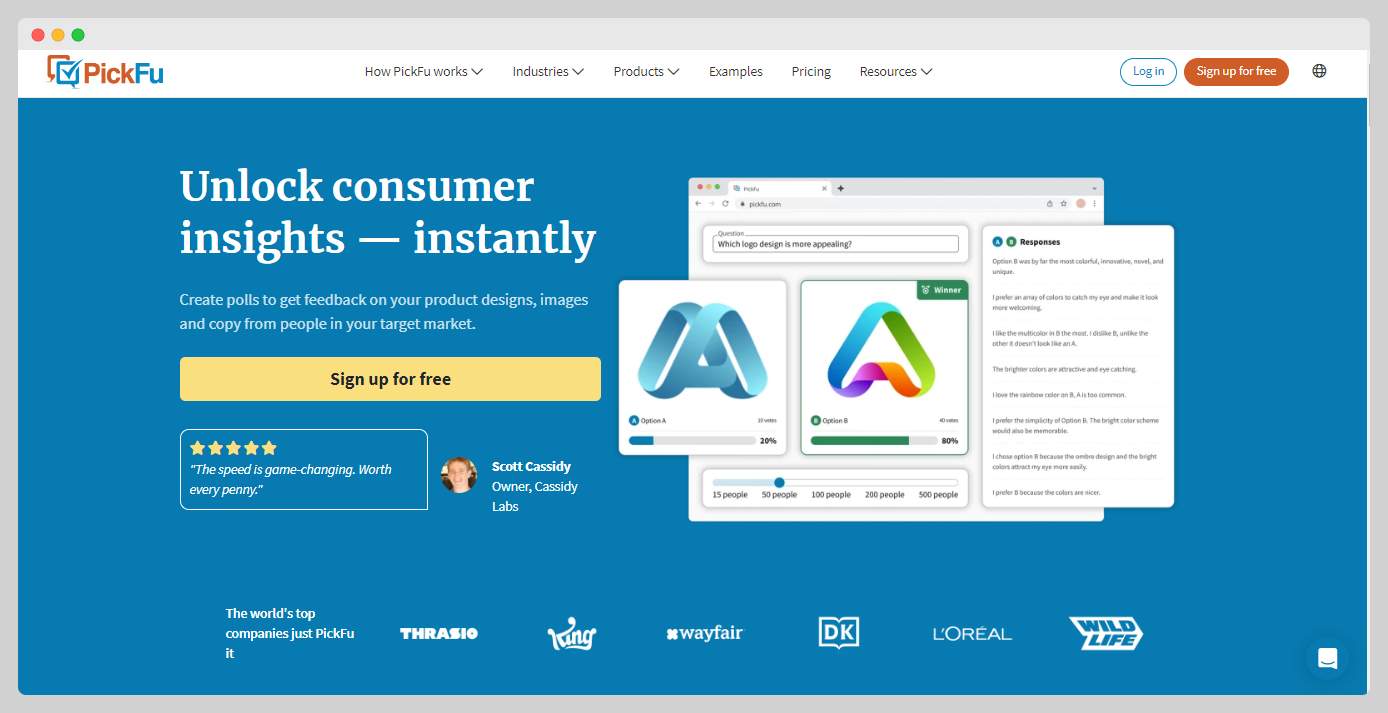
How 2 Founders Built A Booming Consumer Research Platform With PickFu
Who is Justin Chen?
Justin Chen and John Li are the co-founders of PickFu. Justin graduated during the dot-com bust and worked at Microsoft, while John studied computer science at UC Berkeley and worked at HP before they both pursued entrepreneurship.

What problem does Pickfu solve?
PickFu swiftly provides reliable consumer feedback, helping businesses avoid costly design, branding, and product launch mistakes. This makes decision-making faster and reduces the risk of ineffective strategies.


Download the report and join our email newsletter packed with business ideas and money-making opportunities, backed by real-life case studies.

Download the report and join our email newsletter packed with business ideas and money-making opportunities, backed by real-life case studies.

Download the report and join our email newsletter packed with business ideas and money-making opportunities, backed by real-life case studies.

Download the report and join our email newsletter packed with business ideas and money-making opportunities, backed by real-life case studies.

Download the report and join our email newsletter packed with business ideas and money-making opportunities, backed by real-life case studies.

Download the report and join our email newsletter packed with business ideas and money-making opportunities, backed by real-life case studies.

Download the report and join our email newsletter packed with business ideas and money-making opportunities, backed by real-life case studies.

Download the report and join our email newsletter packed with business ideas and money-making opportunities, backed by real-life case studies.










